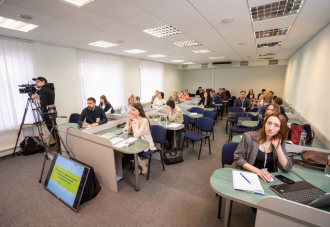CEDEM has repeatedly emphasized that access to at least basic financial products and services is a prerequisite for public participation in economic and social life. For the most vulnerable people, including refugees and the homeless, this can be a matter of survival. Without such access, humanitarian aid might not reach those who need it most.
This is the generalized approach of the European Banking Authority.
Civil society organizations (hereinafter referred to as CSOs) are not only the embodiment of the right to freedom of association, they also work for the benefit of society as a whole. In the Ukrainian context, they support war victims, help bring war criminals to justice, assist the Defense Forces, and play an important role in rebuilding our country.
However, although CSOs can use banking services that are familiar to all legal entities – for example, accounts to receive grants and funds from benefactors – it seems that for a long time banks did not consider them as a separate category of clients.
After all, if you open the website of any bank, you will see quite a few offers and products for private clients and businesses, such as enterprises and individual entrepreneurs, but not for CSOs. The civic sector remained out of sight of these financial institutions for a long time. And it did not help to navigate through banking services and choose a financial institution tailored to the needs. This is about being able to work effectively and smoothly for the common benefit.
In updating information on banking services available to CSOs, we took a quick look at open sources – websites of Ukrainian banks.
As a result, we found that some banks have changed their approach and singled out non-profit organizations (hereinafter referred to as NPOs) as a separate category of clients. This obviously makes it easier for them to choose a bank and the services they need. Moreover, CSOs can finally familiarize themselves with and estimate the cost of banking services from open sources.
As of early October 2023, services directly for NPOs can be found at the below banks:
- Pivdennyi Bankoffers a specialized tariff package for NPOs “Civic”, which is valid for public associations and other non-profit organizations.
- Oschadbanknotes favorable tariffs, service packages tailored to the needs of the client, remote service, high quality and speed of service. Available service packages for NPOs are available at the link.
- Privatbankhas a solution for charitable organizations, which allows round-the-clock account transactions at special tariffs and accepts charitable donations by means of a QR code. The bank claims that thanks to “Open Statement” it is possible to save time on processing requests and printing reports on the movement of funds.
- Ukrgasbankoffers a tariff plan “Non-Profit” for remote banking services for charitable, non-governmental and other non-profit organizations.
- Ukreximbankpoints out the below advantages of using the tariff package “Non-Profit” for NPOs: Cost of account opening, connecting and settlement service using iFOBS (a new remote banking system built on modern technologies), and minimal cost of service. According to the bank, this is an optimal package of banking services designed to meet the needs of organizations engaged in non-profit activities.
This list is by no means a ranking, but rather useful information for CSOs. Moreover, it may not be definitive and we are working on adding to it. Find other relevant information about banks that have products for the non-profit sector on your own through needs-based search engines.
CEDEM within the project “Ukraine Civil Society Sectoral Support Activity” continues to work on improving the dialog between commercial banks and CSOs.
In particular, CEDEM provides a platform for expert discussions and joint trainings with banks in partnership and with the assistance of the Council of Europe Office in Ukraine, the Independent Association of Banks of Ukraine, the Association of Ukrainian Banks and others.
In our view, it is critical to build effective communication between banks and the civic sector. Cooperation and understanding of the peculiarities of legislative regulation of each other’s activities should be the basis.
We invite other banks to share their CSO-friendly practices – we will be glad to tell you about it in our next materials. After all, this will not only help make CSOs more efficient, but also strengthen the interaction between the banking and civic sectors.
The material was created as part of the Project Ukraine Civil Society Sectoral Support Activity implemented by the Initiative Center to Support Social Action “Ednannia” in partnership with the Ukrainian Center for Independent Political Research (UCIPR) and Centre for Democracy and Rule of Law (CEDEM) with the sincere support of the American people through United States Agency for International Development.



